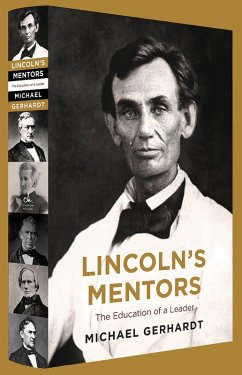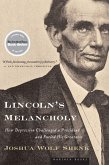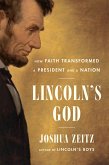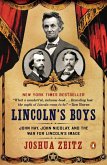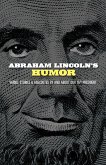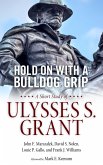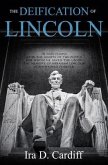An "original, insightful" examination of how Abraham Lincoln learned to lead-and made an extraordinary political comeback (The Wall Street Journal). In 1849, when Abraham Lincoln returned to Springfield, Illinois, after two seemingly uninspiring years in the U.S. House of Representatives, his political career appeared all but finished. His sense of failure was so great that friends worried about his sanity. Yet within a decade, Lincoln would reenter politics, become a leader of the Republican Party, win the 1860 presidential election, and keep America together during its most perilous period. What accounted for the turnaround? As Michael J. Gerhardt reveals, Lincoln's reemergence followed the same path he had taken before, in which he read voraciously and learned from the successes, failures, oratory, and political maneuvering of a surprisingly diverse handful of men, some of whom he had never met but others of whom he knew intimately-Henry Clay, Andrew Jackson, Zachary Taylor, John Todd Stuart, and Orville Browning. From their experiences and his own, Lincoln learned valuable lessons on leadership, mastering party politics, campaigning, conventions, understanding and using executive power, managing a cabinet, speechwriting and oratory, and-what would become his most enduring legacy-developing policies and rhetoric to match a constitutional vision that spoke to the monumental challenges of his time. Without these mentors, Abraham Lincoln would likely have remained a small-town lawyer-and without Lincoln, the United States as we know it may not have survived. This book tells the unique story of how Lincoln emerged from obscurity and learned how to lead. "Abraham Lincoln had less schooling than all but a couple of other presidents, and more wisdom than every one of them... Gerhardt explains how this came to be." -TheWall Street Journal "Gerhardt has devised an ingenious solution for demystifying America's most enigmatic president... These pages trace how a poor backwoods farm boy rose to become among the most eloquent defenders of America's highest ideals, as well as a steely and tenacious source of unity when the nation needed it most." -Russell L. Riley, co-chair, Presidential Oral History Program at the University of Virginia's Miller Center
Dieser Download kann aus rechtlichen Gründen nur mit Rechnungsadresse in A, B, BG, CY, CZ, D, DK, EW, E, FIN, F, GR, HR, H, IRL, I, LT, L, LR, M, NL, PL, P, R, S, SLO, SK ausgeliefert werden.

